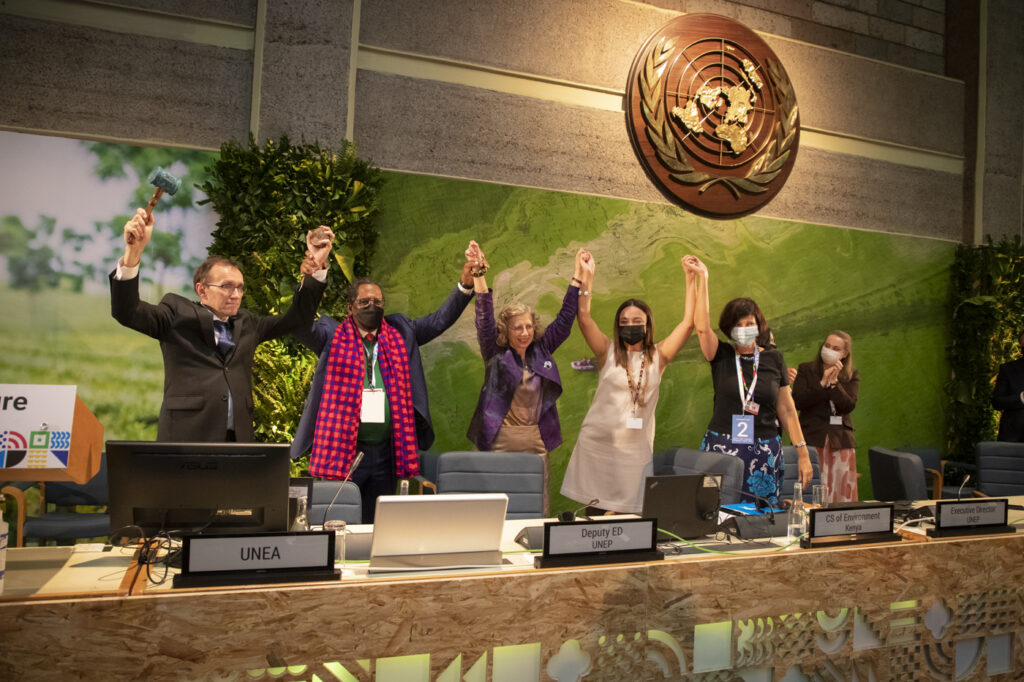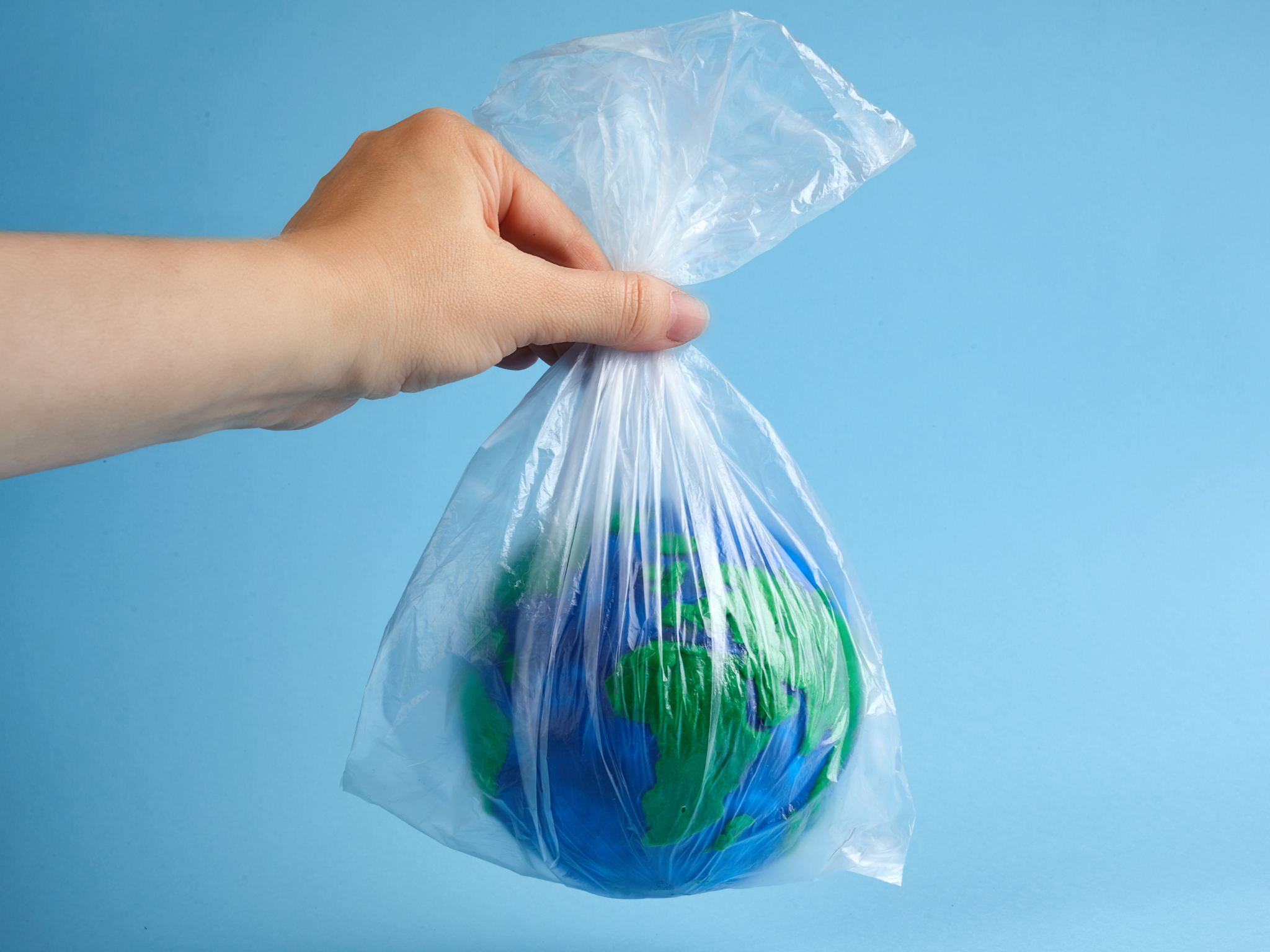In A Policy Shift, US Will Support Global Treaty to Reduce Plastic Production
4 Mins Read
One of the largest plastic producers, the US intends to support a global treaty to reduce plastic manufacturing, marking a shift from its previous position.
The US will support an international target to curb plastic production, giving a major boost to the UN’s hopes of unveiling the treaty by the end of the year.
Countries are scheduled to participate in the fifth and final session of the Intergovernmental Negotiating Committee in Busan in November. It will involve a fan round of negotiations on the global plastics treaty, which was first announced and signed by 175 countries in 2022.
For two years, the US has been on the fence about curbing plastic production, which is no surprise given it is the world’s largest oil and gas producer and home to some of the world’s biggest fossil fuel companies. The world’s largest economy is also among the leading plastic producers.
The US has sided with China, Russia, India and Saudi Arabia on its position on the plastics treaty, asking for the treaty to focus on recycling and packaging design, and leaving production cuts up to individual countries.
But now, in a mark of its climate policy progress under the Biden-Harris administration, it has shifted away from this stance, according to Reuters. It will now back an annual target of reducing plastic manufacturing and the possible phaseout of certain planet-harming chemicals.
US plastic stance now aligns with ‘high-ambition’ countries

An international plastics accord was first floated at the UN Environment Assembly in Nairobi, when all UN members agreed to promote the “sustainable production and consumption of plastics”.
The US’s decision aligns it closer with the High Ambition Coalition to End Plastic Pollution (HAC), a global group of 66 members including the EU, the UK, Canada, Japan and South Korea. The US is the only G7 country not to have signed on to the coalition so far.
The HAC is calling for an end to plastic pollution by 2040 and measures to cap and phase down its production in the global treaty. Making plastic contributes to 3.4% of global emissions, a figure that’s set to double by 2060 based on current trends. The material takes between 20 to 500 years to break down and decompose, and a global review published this week found that “every plastic-associated chemical group is associated with at least one adverse health outcome”.
According to the HAC, plastic consumption has increased fourfold in the last 30 years, while production doubled in the first two decades of this century. It will further double over the next 20 years. Meanwhile, less than 10% of all plastic actually ends up being recycled, with over three-quarters ending up in landfills.
To counter these trends, the HAC has called for the elimination of problematic plastics (via bans or restrictions), a global sustainability standard for plastics, transparency in the value chain (including material and chemical composition), and mechanisms to strengthen commitments and targets over time.
The US now also supports the creation of a global list of chemicals that can help avoid multiple national requirements and set a single, streamlined standard to identify “avoidable plastic products” to be phased out.
Decisive Busan negotiations come two weeks before US election

Negotiations over the plastic treat have gone through four rounds of talks. The latest meeting in Ottawa in April went into overtime as negotiations became increasingly fraught. Saudi Arabia and China were among the governments blocking further discussions on production caps, arguing for less contentious subjects like waste management instead.
Ahead of the conference in Busan (November 25 to December 1), where countries are expected to finalise the plastics treaty, the EU has warned that such delaying tactics by petrostates will make it “very difficult” for negotiators to come to an agreement.
This is why the EU and 36 other governments have partnered with environmental charities to form the Bridge to Busan initiative, aiming to keep the target to cut production in the treaty text for Busan.
While it’s unclear if the US will support this effort, the White House has told stakeholders that its policy shift “raises ambitions”, according to Reuters.
The move has unsurprisingly been criticised by industry groups. “With today’s shift in position to support plastic production caps and regulate chemicals via the UN Plastics Agreement, the White House has signalled it is willing to betray US manufacturing and the hundreds of thousands of jobs it supports,” said Chris Jahn, president of the American Chemistry Council.
On the contrary, climate advocates praised the decision, with Greenpeace calling it a “watershed moment”. “It is a welcome signal that they are finally listening to the demands of the American people,” said John Hocevar, oceans campaign director at Greenpeace USA.
The development comes a month after the Biden-Harris administration announced the US’s first strategy to address plastic pollution, pledging to phase out single-use plastics from federal operations by 2035.
The Busan talks come two weeks after the US presidential election between vice-president Kamala Harris and former president Donald Trump. The former has been endorsed by many climate advocates, while the latter rolled back over 100 environmental policies during his term, took the US out of the Paris Agreement, and has promised a fossil fuel expansion if reelected.



